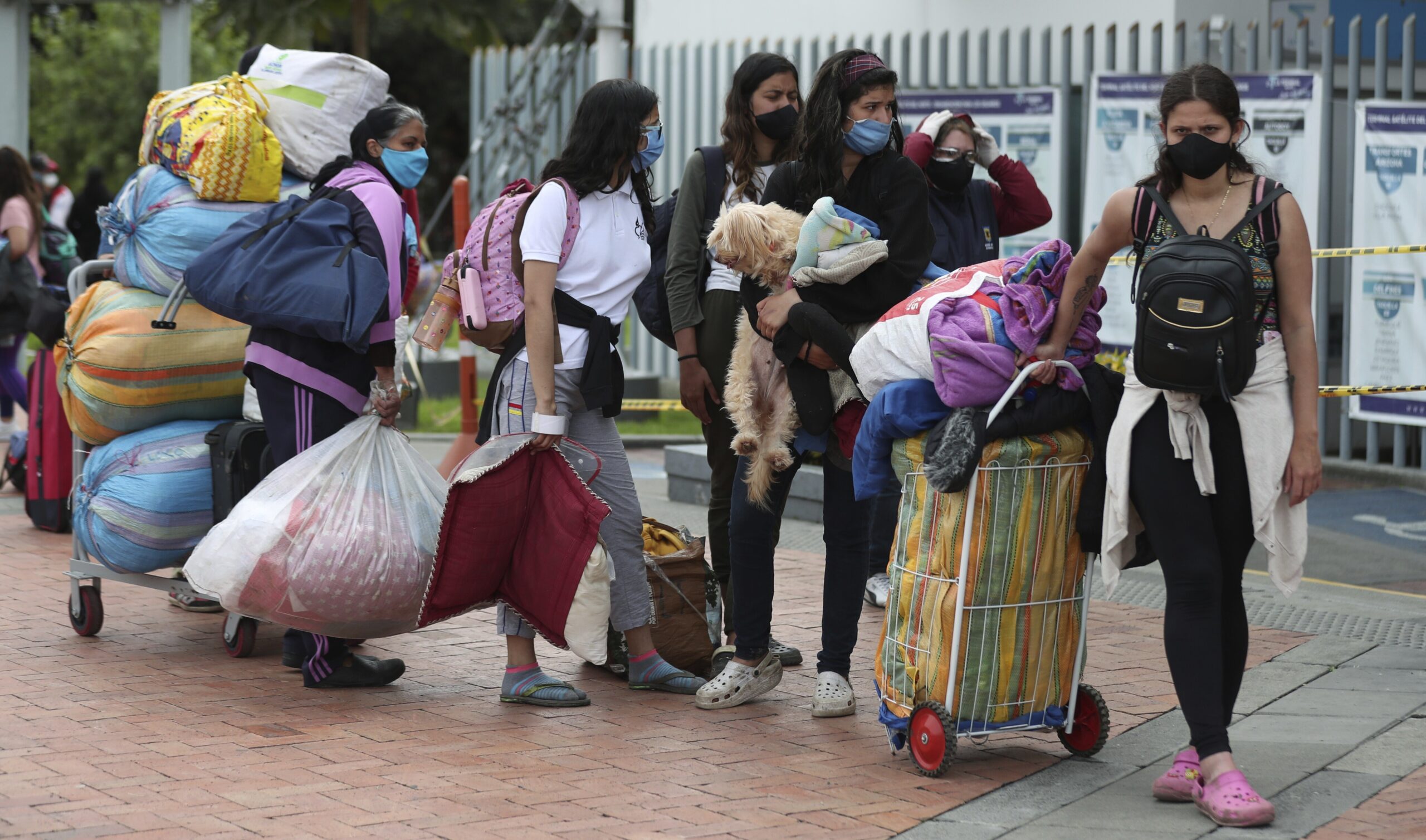This year, Venezuelan migrants and refugees face unprecedented challenges and risks as a result of the COVID-19 pandemic, border closures, and inhumane treatment of migrants both within and outside of Venezuela. Since countries throughout the region initiated border closures and mandatory quarantines in March to respond to the spread of the coronavirus, millions of Venezuelans living abroad—most of whom do not have regular status and could only find work in the informal economy—lost their livelihoods, and many have been forced to return home. Since March, over 100,000 Venezuelans have returned home from abroad, only to face stigmatization and repression in their home country.
While Venezuelan refugees were already in vulnerable situations before the COVID-19 outbreak, the pandemic has aggravated many of these vulnerabilities and has put migrants and refugees in a particularly precarious position. Lack of regular status in host countries has been the largest factor affecting Venezuelan migrants of late, resulting in an inability to gain access to formal employment, reliable shelter, and most public health services. In normal times, this is a barrier to integration and good health; during COVID-19, it is an outright public health disaster.
In the context of a pandemic that has already sparked economic contraction, unemployment, and evictions, Venezuelan migrants have been left without resources to protect or provide for themselves. Many countries, such as Peru, provided cash handouts to their citizens in order to mitigate the economic impacts of the pandemic, but Venezuelan migrants were regularly excluded from these measures. Additionally, many Venezuelan migrants unable to pay their rent have faced eviction, often in spite of formal moratoriums on evictions during the pandemic.
At least 100,000 Venezuelans have made the difficult decision to return home to their families in Venezuela amid the worst humanitarian crisis the region has seen in modern history. While many have returned on buses provided by the Colombian government, the vast majority are believed to have returned by foot—a much more perilous journey. As of August 6, the Colombian government claims that another 42,000 are waiting to return.
In June, the Maduro government imposed new restrictions to permit only 300 returned migrants per day, leaving the remaining returnees to wait in makeshift camps on the Colombian side of the border or cross unofficially. Then, on August 21, Maduro further limited the entry of returned Venezuelans by closing off the Simon Bolivar Bridge, the primary crossing point between the two countries.
Perhaps the most difficult aspect of the situation for these returned migrants is the treatment they’ve received from the Maduro government and Venezuelan security forces upon return. Since March, Maduro has deployed his security forces to detain returned migrants in makeshift COVID-19 isolation camps along the border where they are tested and forced to remain for weeks or months at a time. The conditions in these camps have been widely denounced and include severe overcrowding, insufficient food, a lack of protective gear, and unsanitary conditions, causing these border regions to become hotspots for the spread of the virus.
These isolation camps are strictly policed by Venezuelan military officials, and detained migrants who exhibit symptoms of the coronavirus are reportedly receiving unapproved treatments such as hydroxychloroquine. What’s more, Venezuelans that have re-entered the country through informal means are threatened with detention and prosecution, as police forces are patrolling several of the country’s cities in search of offenders.
At the onset of the COVID-19 pandemic, Nicolás Maduro stated that all returning Venezuelans would be welcomed “with love and open arms.” However, as the health crisis has overtaken the country’s already crumbling public health institutions, some in Chavismo have shifted this narrative to blame returned Venezuelans for the spread of the virus within the country, with one regional official even labeling them “biological weapons.” Maduro has also blamed the Colombian government for intentionally spreading the virus via Venezuelan migrants, and has referred to COVID-19 as the “Colombia Virus.”
Maduro’s rhetoric against returned Venezuelans has been denounced by human rights activists who fear that these migrants, who are already in such a vulnerable situation, will be stigmatized and persecuted in their own country. As COVID-19 continues to spread throughout Venezuela and overwhelm its already ill-equipped hospitals, and as the Maduro government escalates a crackdown, it is likely that many more Venezuelans will flee the country in the coming months—and that they will bring their families with them.
Experts along the Colombia border and Colombian officials are reportedly preparing for another wave of migrants out of Venezuela in the fall, with authorities estimating that at least 80 percent of those who have returned to Venezuela in recent months during the pandemic will again return to Colombia. They speculate that most Venezuelan migrants who have returned from abroad likely did so to retrieve their family members still in Venezuela and take them with them to neighboring countries. Migracion Colombia officials have also said that each Venezuelan migrant that returns to Colombia will bring an additional person with them, suggesting that the projected wave of migrants out of Venezuela later this year may be of an unprecedented scale.



